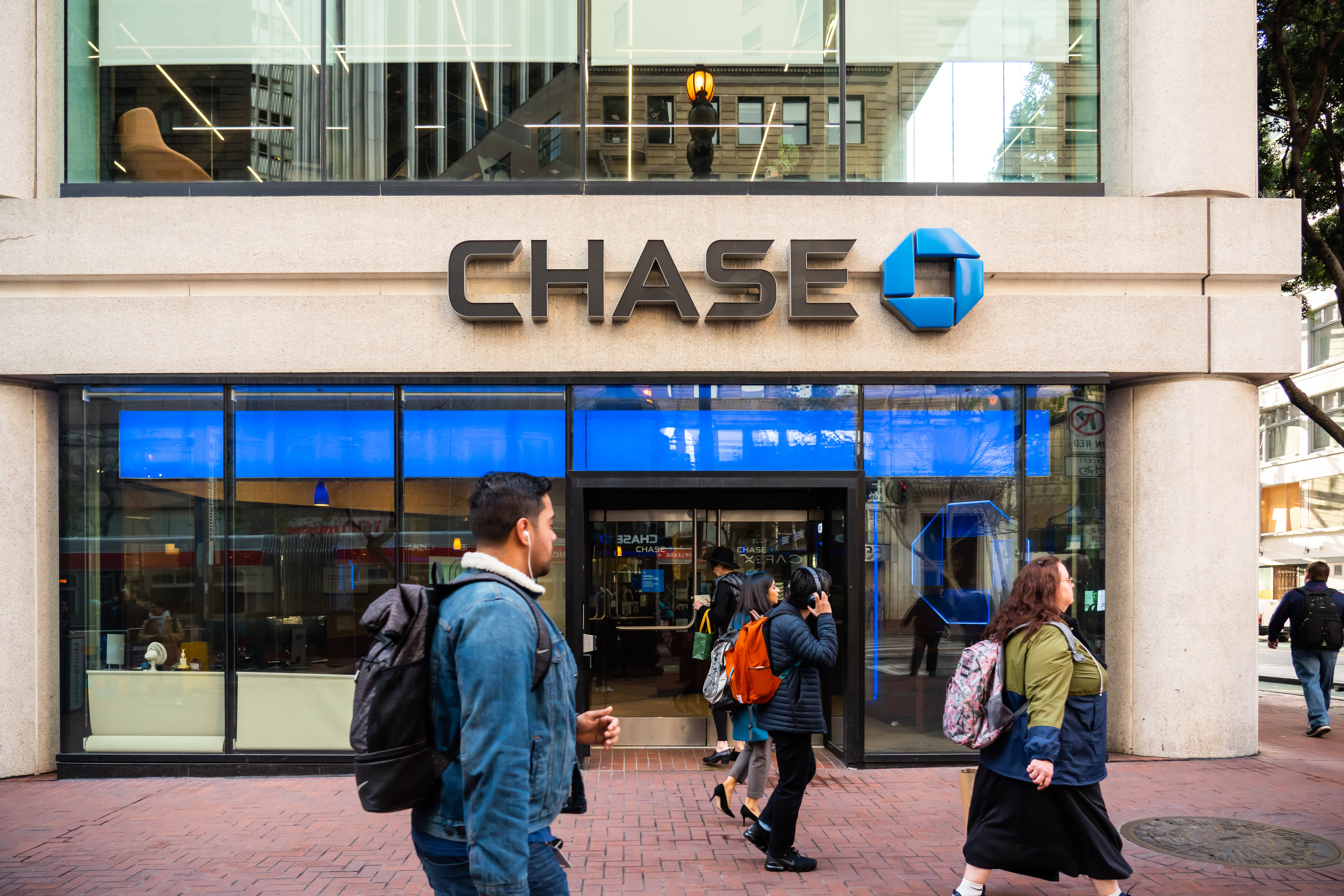Pedestrians walk past a J.P. Morgan Chase bank branch.
Alex Tsai | SOPA Images | Getty Images
U.S. banks have a huge opportunity to emerge from the coronavirus as “heroes” and “good guys,” a fund manager told CNBC on Wednesday.
Speaking to CNBC’s “Street Signs Europe,” Nick Ford, co-manager of the U.S. Opportunities Fund and U.S. Smaller Companies Fund at Premier Miton Investors, said there was a “big silver lining” for lenders, despite the pandemic piling pressure on their operations.
“Bear in mind that banks are the transmission for the systems getting money to people in difficulty,” he said. “I think there’s a huge opportunity for the U.S. banking system to come out of this as very much the good guys — as the heroes.”
Ford acknowledged that banks were entering “a very difficult period,” with the impending economic downturn as a result of the pandemic likely to put pressure on credit card and loan repayments. However, he said lenders would be well-positioned after the crisis if they worked with authorities to help ensure vital funds made it to small firms and consumers that needed them.
“If they can work through the problems they’ve been having with the SBA (Small Business Administration) in actually getting money to small businesses and consumers, and perhaps be a lot more compassionate in terms of forbearance, forgiving late payments and payments on loans, they can come out of this looking very, very good,” he told CNBC.
Banks have begun to distribute funds for the U.S. Payroll Protection Program, a $349 billion aid package allocating forgivable loans to small firms to mitigate the economic impact of the pandemic. However, the SBA warned on Wednesday that the first-come, first-served program — which has already approved 1.3 million loans — may be nearing its limit.
Wells Fargo and J.P. Morgan Chase both reported this week that they had received more than 300,000 applications for loans under the scheme.
Negative impacts from the coronavirus crisis were rife in banks’ earnings reports this week, with Citigroup, Bank of America and Goldman Sachs all posting profit declines of more than 45% as they built up their reserves.
However, Mohamed El-Erian, chief economic advisor at Allianz, said U.S. lenders were quick to set billions aside for loan losses because it allowed them to protect their image by concealing higher trading revenues.
“If you’ve made a ton of money on trading, you really don’t want to show massive profits,” he told CNBC. “You don’t want to say, ‘hey look I’m doing OK,’ while (millions) have been unemployed.”
Wall Street has come under fire amid the crisis, as stocks have rallied over recent weeks, despite a record number of Americans losing their jobs. Lawmakers have also clashed over corporations being granted tax-funded bailouts, while smaller businesses and households face increasing financial pressure.
Meanwhile, Standard Life Aberdeen CEO Keith Skeoch told CNBC on Thursday that corporates had a “moral imperative” to keep paying dividends throughout the crisis, as major lenders across Europe gave into pressure from central banks to scrap dividend payments for 2020.
— CNBC’s Kate Rogers, Betsy Spring and Kevin Stankiewicz contributed to this article.
